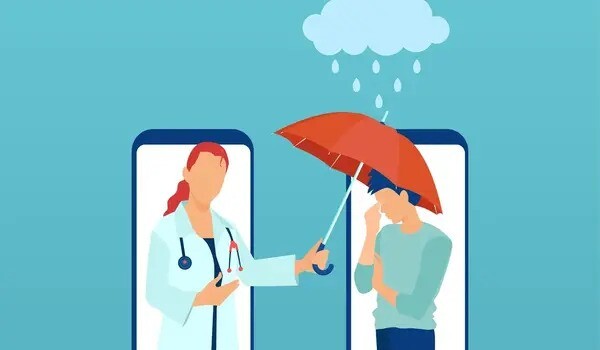A cognitive behavioral therapy (CBT) app has been shown to significantly reduce depression in at-risk young people, and it could be used as a low-cost public mental health intervention.
Global concern is emerging concerning the high and constantly rising incidence of anxiety and depression among young people. Effective and scalable approaches to avoiding poor mental health in this population are required, and digital tools such as smartphone apps have been recommended as part of the solution.
Whilst there is emerging evidence for mental health apps being effective in treating anxiety and depression, this project led by the University of Exeter is the first to rigorously test a mental health app on such a large scale across four countries. Two linked papers published in Lancet Digital Health report the results of the ECoWeB-PREVENT and ECoWeB-PROMOTE trials, which ran concurrently in the four-year study funded by Horizon 2020. Critically, these studies found that a CBT self-help app can protect vulnerable young people against depression.
Our findings indicate that even when young individuals used the self-help app a few times, there was a tiny but significant benefit. Because the app can be scaled to a large number of individuals at a low cost, these effects have the potential to be valuable as a public health intervention within a larger portfolio of digital and in-person services.
Professor Ed Watkins
Professor Ed Watkins of the University of Exeter led the experiment and stated, “For young people at high risk, our findings suggest that the CBT app has a preventative effect on depression and may have a public health benefit.” Participants reported improved quality of life, employment, and social functioning.
However, we discovered that it is difficult to create improvements in young people who are otherwise performing well. “Our findings add to the evidence that prevention for depression is most effective when we identify and choose those who are more vulnerable, rather than taking a more general approach. This identification could be accomplished through an online self-screening approach or by professional referral.”
The aim of the £3.3-million project was to test the effects of mobile apps in preventing depression and promoting mental well-being for young people aged 16 to 22. In one of the largest studies of its kind, 3,700 young people took part across the UK, Germany, Belgium, and Spain and were allocated into two trials based on their emotional competence abilities at the start of the study.

That resulted in 1,200 young people with reduced emotional competency scores that confer increased risk for depression such as increased worry and overthinking going into one trial focused on prevention, whilst 2,500 without such risk went into the other trial focused on wellbeing promotion.
These two groups were then randomly assigned in equal numbers to three distinct apps produced by the research. There was a self-monitoring app that allowed users to record their feelings on a daily basis, a self-help app that gave personalized training in emotional competency abilities, and a self-help app based on cognitive behavioral principles. Participants were then followed up after three and twelve months to examine how their well-being and depressive symptoms altered.
The studies discovered that the CBT app averted an increase in depression compared to self-monitoring in the higher risk population, but there was no difference in the benefits of any of the interventions in the lower risk sample.
Professor Ed Watkins stated, “Our findings indicate that even when young individuals used the self-help app a few times, there was a tiny but significant benefit. Because the app can be scaled to a large number of individuals at a low cost, these effects have the potential to be valuable as a public health intervention within a larger portfolio of digital and in-person services. The next steps are to determine the app’s positive active components and to boost engagement and continued use of these features.”
















